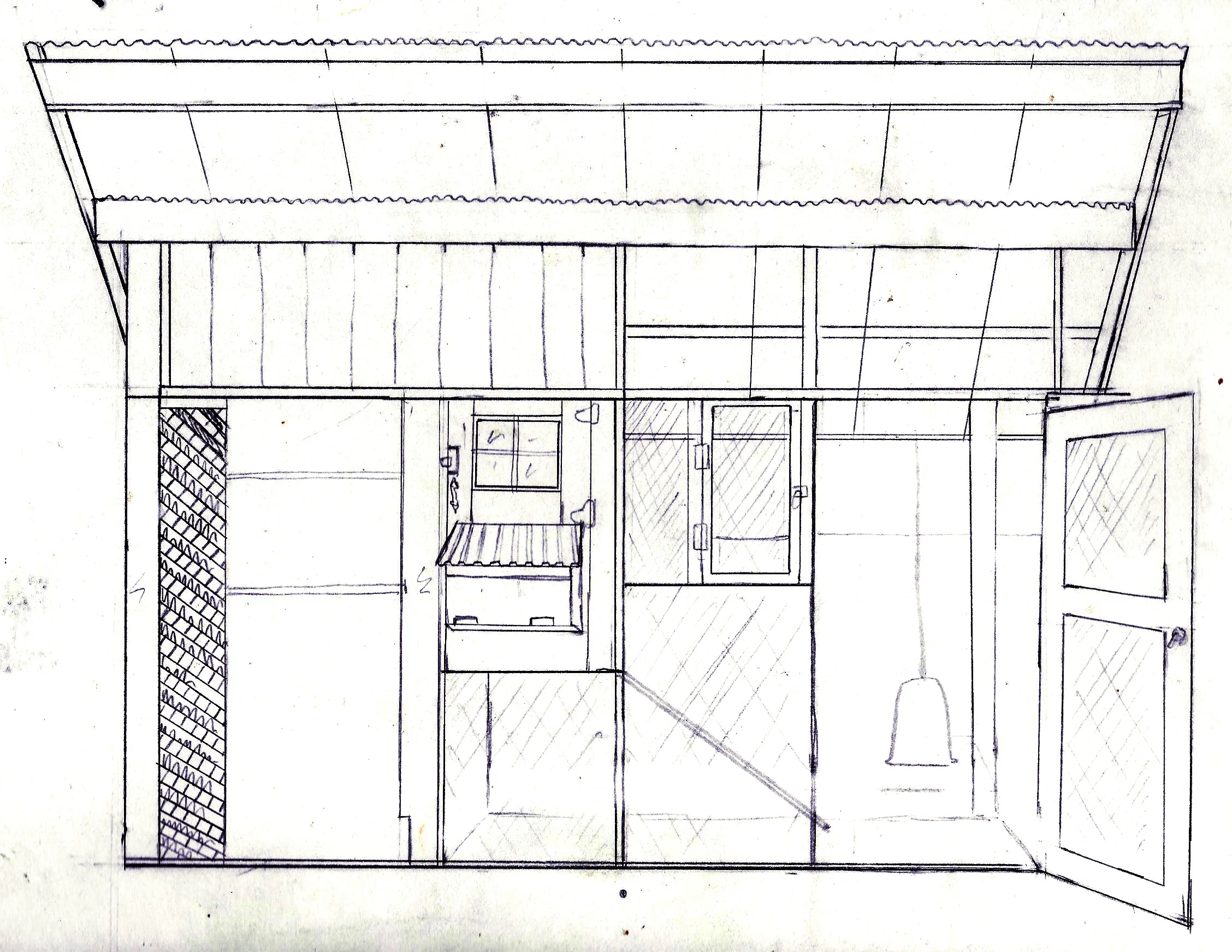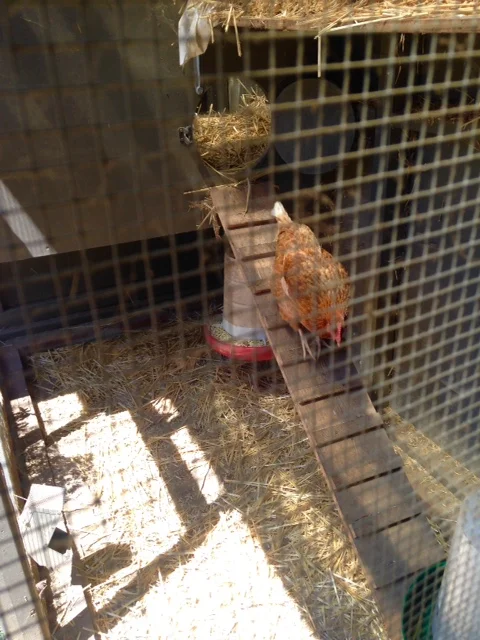The Hen House
/Writing by Rickie Barnett
Join us July 16th as we participate in Seattle Tilth's chicken Coop & Urban Farm Tour
Get your Tickets!
Nestled on the northeast corner of the Ceramistas Seattle property rests the Hen House. This modest grey building with a red screen door is tucked away behind the house, atop the berry hill, and next to the composting bins.
Built from mostly reclaimed and leftover construction materials, the “Hen House” sits on a 44 sq.ft. floor plan with a 22 sq.ft. attached garden shed, making this 66 sq.ft. building more like a poultry palace.
The location planning for a chicken coop is important. Keep your neighbors in mind. Chickens' lovely little clucking noises are not equally welcomed by everyone.
Close proximity to the compost makes for ease of use. Chicken manure is a massive benefit of tending these birds. Your garden will thank you with lush leaves and profuse fruits.
Drawing by Tilly Troelstrup
Our fully fenced in, rooster free, chicken run is more than enough space to stretch those scrawny little chicken legs in a safe place. Free of the shackling fears of becoming the next meal for the raccoon family (frequently seen party of 5), our six lovely little ladies rest assured of a relaxing, worry-free day of violently slamming their faces into the ground.
After a long day of head banging for seeds and bugs our cutie dinosaur booties wattle into the foyer of the coop to partake in an all they can eat and drink bamboozle from fully stocked, self feeding, H2O and chicken feed contraptions. The front wall of Hen House is mostly wire mesh, providing plenty of natural light and a wonderful view for our feathered friends as they take in their evening refreshments before retiring to bed in their 74 cu.ft. roost.
Nesting Box
Door to Roosting Area
Detail of Latch
The roosting area and nest box are joined and fully enclosed by painted plywood. The roosting area offers three horizontal perches and is entered up a softy inclined ramp with plenty of wooden rungs (spaced 5" apart), through a custom circular entry (5.75 in in radius), and has joint access to the nest box. The nest box is a 3 cu.ft. room with a partition dividing the space into two 1 cu.ft. spaces, giving our girls plenty of privacy while they doing their egg laying. The back wall of the nest box folds down from the outside to offer easy access for egg collecting, while the nest box itself rests on an even larger door that opens up into the roost for easy house-keeping.
Although modest, our coop offers plenty of space for storing extra hay and feed, as well as easy access for maintenance and so much room for our little bird turds. Our Hen Pen has become an essential part of our operation here at Ceramistas Seattle: Studio and Gardens and we are proud and honored to share it with you.
Ramp & door from roosting area
Check out the feeders!
Chicken run area
The Nitty Gritty:
Coop under construction
The Hen House Has:
* a single layer of cement block as the foundation with one layer of cement pavers mortared on top of it under stick frame walls.
* cement pavers covering the entire floor (with no spaces), with a layer of waste cement chunks and large rocks under that. This makes it nearly impossible to dig under the walls into the coop.
* hardware cloth instead of chicken wire for two walls. This is stronger, keeps mice & rats out, and racoons cannot reach through it to mutilate your chickens!
* we keep the feed, straw, and wood shavings in the coop to keep them vermine.
* we close the main door to the coop every evening after the ladies have put themselves to roost.
* larger feeding and water containers make it so we only have to fill them every couple days.
* the roosting area/ nest boxes are easily accessible which makes cleaning less of a chore. The less bending and hunching over the better.
* we hang the wild bird feed over the chicken area, so all the spit seed is treats for them instead of unwanted weeds.
* chickens destroy plants by scratching the roots and pecking them if they want to eat them. Plants we have found to withstand chickens affections (or are undesirable) are... Lilac, rosemary, rue, mint, daphne, evergreen, agave, echinacea, rudbeckia, euphorbia. It works best if planting newly to keep the chickens away from the plants until the ground settles again. Or put pavers around the new planting to protect it from bulldozing chickens seeking worms.















